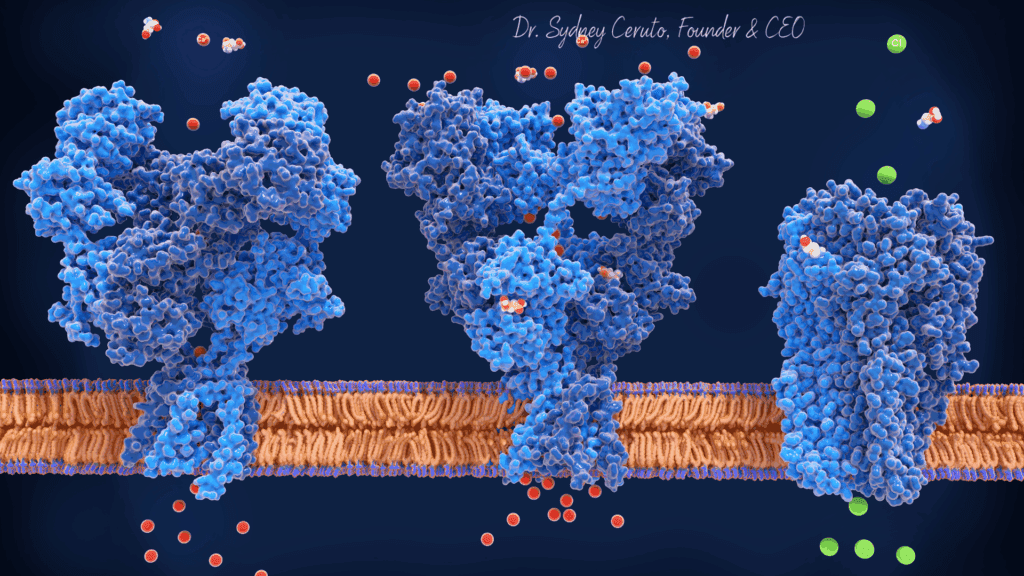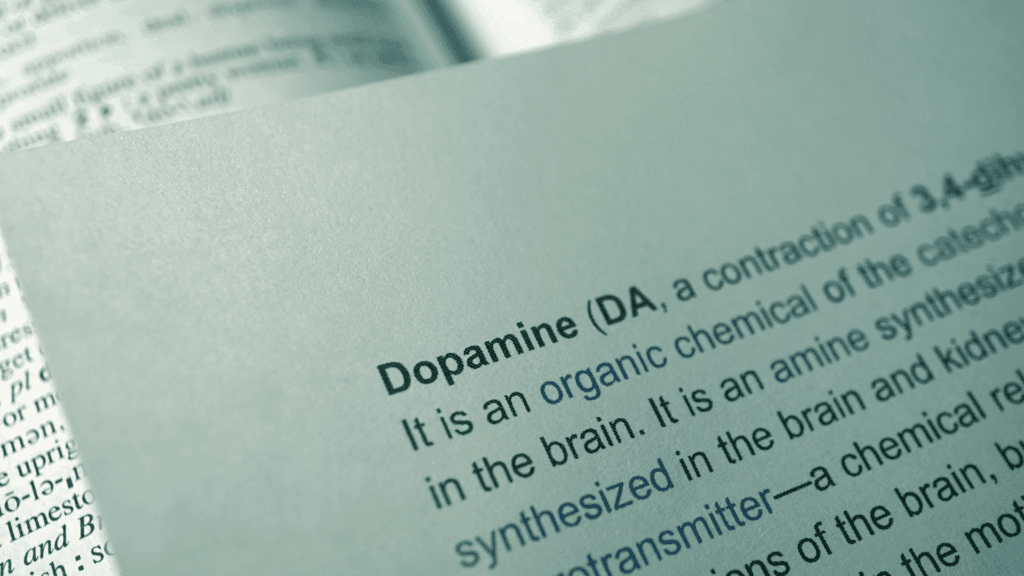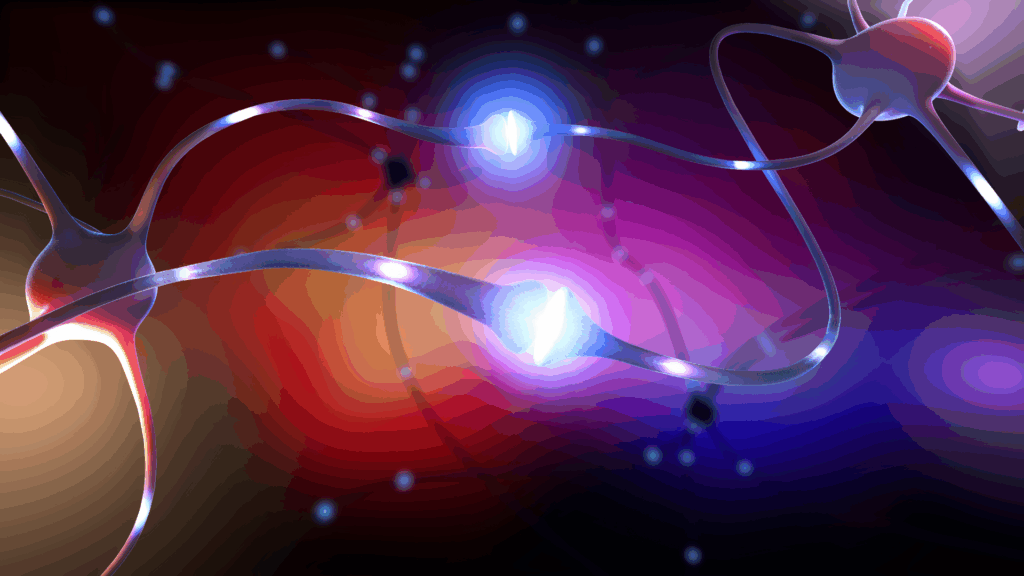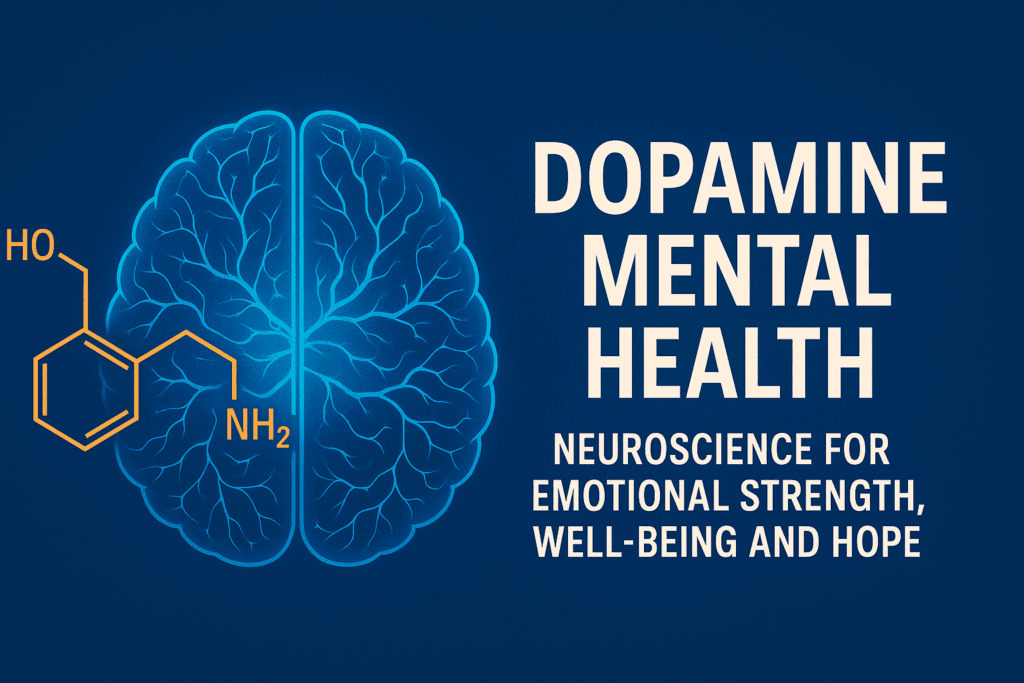The relationship between dopamine and mental health reveals that this powerful neurotransmitter plays a far more complex role in depression, anxiety, and emotional regulation than previously understood. Recent 2024-2025 research demonstrates that dopamine dysfunction lies at the heart of many mental health challenges, from the crushing anhedonia of major depression to the paralyzing fear responses in anxiety conditions. The good news: neuroscience-based coaching and evidence-based interventions can effectively optimize dopamine function, offering hope for those seeking alternatives to medication or enhanced results when combined with traditional treatment.
Understanding Dopamine and Mental Health: Beyond the “Feel-Good” Chemical
Dopamine and mental health understanding has undergone a revolutionary transformation. While dopamine has long been called the brain’s “feel-good” neurotransmitter, groundbreaking 2025 research from the University of Colorado Anschutz Medical Campus reveals that dopamine operates with extraordinary precision, acting more like a finely-tuned postal service delivering highly localized messages rather than broadcasting signals across large brain areas. This discovery fundamentally changes how we understand dopamine mental health and its application to coaching and treatment.
Dopamine regulates critical functions including motivation, reward processing, decision-making, movement, learning, and emotional responses. The neurotransmitter operates through multiple pathways in the brain, with three primary circuits playing central roles in mental health: the mesolimbic pathway (reward and motivation), the mesocortical pathway (executive function and emotional regulation), and the nigrostriatal pathway (movement and some cognitive functions).
The dopamine system’s dysfunction has been implicated in a staggering range of brain conditions, including Parkinson’s disease, addiction, schizophrenia, ADHD, and depression. Current approaches to dopamine mental health largely focus on restoring overall dopamine levels, but this precision signaling research suggests that the timing and location of dopamine transmission may be just as crucial as total dopamine availability.
The Dopamine Depression Treatment Revolution: Targeting Reward Dysfunction
Depression and dopamine dysfunction share an intimate, bidirectional relationship that neuroscience-based coaching can address through targeted interventions grounded in how dopamine actually functions in the brain. At the heart of this connection lies anhedonia, the diminished ability to experience pleasure or interest in previously rewarding activities, which affects motivation, social engagement, and quality of life.

Anhedonia: The Dopamine-Driven Core of Depression
Anhedonia represents one of two cardinal symptoms of major depressive condition, yet standard antidepressants often fail to adequately address this dopamine-related symptom. Research published in 2024 reveals that clients with prominent anhedonia demonstrate a more severe depression profile, including higher suicide risk, more previous depressive episodes, and critically, treatment resistance. Anhedonia is associated with nonresponse to treatment and treatment resistance even after adjusting for other variables.
The nucleus accumbens (NAc), a key structure in the brain’s reward circuit, plays a pivotal role in depression and dopamine mental health pathophysiology. This region, considered the center of reward and learning, becomes dysfunctional in depression, leading to inhibited dopaminergic activity. When dopamine activity in the NAc is reduced, individuals lose the ability to find pleasure in activities that once brought joy, a hallmark of depressive illness. Understanding this dopamine depression treatment mechanism allows coaches to design interventions that specifically address anhedonia through behavioral activation and reward-based strategies.
Ventral Tegmental Area: The Depression Command Center
The ventral tegmental area (VTA), which houses dopaminergic neurons projecting to the nucleus accumbens and prefrontal cortex, proves crucial for coping with stress and preventing depression. Studies show that chronic stress alters VTA dopamine neuron activity in complex ways, sometimes increasing burst firing early in stress exposure as a maladaptive response, while eventually leading to reduced dopaminergic function in depression. Understanding dopamine depression treatment requires attention to how stress dysregulates this critical dopamine center.
Remarkably, 2021 research identified that stress-susceptible individuals showed activated ErbB4 receptors in VTA dopamine neurons, and blocking this activation suppressed the development of depression-like behaviors following chronic social defeat stress. This research opens new avenues for dopamine mental health interventions targeting specific molecular mechanisms rather than broadly increasing dopamine levels.
Reward Sensitivity and Treatment Response
A landmark 2025 study published in Brain revealed that depression in Parkinson’s disease is characterized by disrupted reward sensitivity that is unresponsive to dopaminergic medication. While dopamine treatment increases reward sensitivity in non-depressed Parkinson’s clients, this therapeutic effect disappears in clients with depression. This finding suggests that depressed individuals may have distinct dopamine-related mechanisms requiring behavioral and cognitive interventions, precisely where neuroscience-based coaching becomes invaluable for dopamine depression treatment.
Research indicates that dopamine stimulating agents show overall effectiveness in reducing depressive symptoms with a small-to-modest effect size, but significant publication bias weakens the evidence. This underscores the need for comprehensive approaches combining behavioral interventions with dopamine mental health principles.
Dopamine Anxiety Neuroscience: The Hidden Hippocampus Connection
The relationship between dopamine and anxiety represents one of the most exciting frontiers in contemporary brain research. For decades, dopamine’s role in anxiety was overshadowed by its better-known functions in reward and motivation. However, 2025 research from Mount Sinai’s Icahn School of Medicine published in Nature revealed groundbreaking findings that fundamentally changed our understanding of dopamine anxiety neuroscience.

The Ventral Hippocampus Dopamine Discovery
Mount Sinai researchers discovered distinct roles for D1 and D2 dopamine receptors in the ventral hippocampus—a region involved in emotional regulation and stress responses. This represents the first comprehensive functional study of these dopamine-expressing cells in this brain area, demonstrating that dopamine plays a far more important role in anxiety regulation than previously believed. Understanding dopamine anxiety neuroscience at this level allows practitioners to develop targeted interventions for anxiety conditions.
The hippocampus coordinates decision-making in anxiety-inducing situations where individuals face approach-avoidance dilemmas, scenarios with both desirable and potentially undesirable consequences. D1 and D2 dopamine receptors mediate opposite approach-avoidance responses. Activation of D1 receptors tends to promote avoidance and anxiety-like behaviors, while D2 receptor activation surprisingly reduced fear in experimental mice. This dopamine anxiety neuroscience finding explains why dopamine dysregulation contributes to anxiety and mood conditions and provides specific targets for therapeutic intervention.
Prefrontal Cortex: The Dopamine Anxiety Brake
Dopamine in the medial prefrontal cortex (mPFC) plays a modulatory role in anxiety by exerting a “cortical brake” on anxiogenic output from the amygdala. The prefrontal cortex receives dopaminergic projections that help regulate emotional responses and decision-making under stress. Understanding this dopamine anxiety neuroscience pathway allows neuroscience-based coaches to help clients strengthen this regulatory circuit through targeted cognitive and behavioral strategies.
Research shows that D1 dopamine receptor activation in the medial prefrontal cortex mediates anxiety-like behaviors. When glutamatergic activity from the ventral hippocampus is blocked, D1 receptors in the prefrontal cortex become involved in producing anxiety responses. This highlights the complex interplay between different brain regions and dopamine receptor subtypes in dopamine anxiety neuroscience.
The Amygdala’s Dopamine Anxiety Signals
The amygdala, critical for processing fear and anxiety, contains dopaminergic projections from the ventral tegmental area that target specific subregions. D1 receptor infusion into the amygdala induces anxiety-like effects, while D1 antagonists produce anxiolytic (anti-anxiety) effects in both conditioned and unconditioned anxiety models. This indicates D1 receptors in the amygdala have an anxiogenic function central to dopamine anxiety neuroscience.
Conversely, D2 receptors in the amygdala can produce either anxiogenic or anxiolytic outcomes depending on the type of threat encountered. This receptor-specific complexity explains why dopamine anxiety neuroscience requires nuanced, personalized approaches rather than simple “increase dopamine” strategies. Importantly, both low and high dopamine levels can trigger anxiety symptoms. Dopamine fluctuations in individuals already diagnosed with anxiety can aggravate symptoms, making dopamine balance—not just dopamine increase, the key therapeutic goal in dopamine anxiety neuroscience treatment.
Dopamine Emotional Regulation: Processing Feelings Through Brain Chemistry
Dopamine emotional regulation extends far beyond simple pleasure responses, encompassing how we recognize, process, and respond to emotional stimuli. Emerging research demonstrates that dopamine plays a direct and indirect role in the full emotional process. Dopamine emotional regulation is central to dopamine mental health applications in coaching and clinical practice.
Dopamine contributes significantly to emotional perception and regulation through its actions in multiple brain regions. The impairment of emotional processes in neurologic and psychiatric pathologies involving the dopaminergic system, including Parkinson’s disease, schizophrenia, autism, and ADHD, confirms dopamine emotional regulation’s central role in emotional functioning.

Emotion Recognition and Dopamine Levels
Research published in 2022 revealed that dopamine levels directly affect the ability to recognize emotions in others, a crucial social skill. University of Birmingham researchers manipulated dopamine levels and found that dopamine boosts improved emotion recognition in individuals with lower baseline dopamine levels, while dopamine reduction impaired recognition abilities in those with higher baseline levels. This dopamine emotional regulation finding has profound implications for neuroscience-based coaching and emotional strength.
This finding has profound implications for dopamine mental health coaching, as difficulties recognizing emotions in oneself and others contribute to depression, anxiety, and relationship problems. Low dopamine levels negatively affect the social skills necessary for effective interactions.
Dopamine and Serotonin: The Dynamic Duo
While dopamine receives significant attention, its interaction with serotonin proves equally important for emotional regulation and dopamine emotional regulation. A first-in-human 2024 study from Mount Sinai revealed that dopamine and serotonin have overlapping yet distinctive roles influencing social behavior. Dopamine levels were overall higher when people interacted with other humans compared to computers, highlighting its role in social motivation.
The study demonstrated that rapid changes in these neurotransmitters reflect context and value signals during social interaction in distinct yet complementary ways. This research underscores that effective dopamine emotional regulation involves considering the broader neurochemical environment, not dopamine in isolation. Understanding this interplay is crucial for neuroscience-based coaching approaches that address emotional regulation holistically and build emotional strength.
The Cingulate Cortex Connection
The cingulate cortex, particularly the subgenual anterior cingulate, shows decreased activity in major depression and responds to dopaminergic interventions. Dopamine release in the posterior cingulate correlates with mood regulation and emotional resilience, and this brain region’s dopamine response is abnormal in mood conditions related to dopamine dysfunction. The cingulate cortex response to dopamine agonists provides a functional basis for dopamine emotional regulation’s role in anxiety and depression and emotional strength.
Neuroscience-Based Coaching: Non-Pharmaceutical Dopamine Optimization
The most empowering revelation from dopamine and mental health research is that behavioral and lifestyle interventions can meaningfully optimize dopamine function without pharmaceutical intervention—or enhance medication effectiveness when combined with treatment. Neuroscience-based coaching translates dopamine mental health science into actionable strategies for dopamine optimization grounded in how the brain actually works.
Behavioral Activation: Deliberately Stimulating Dopamine
Behavioral activation therapy specifically targets dopamine dysfunction by deliberately engaging in behaviors that activate positive emotional states. This dopamine mental health approach recognizes that dopamine production is enhanced by progressing and achieving tasks. Setting achievable milestones, pursuing new hobbies, and learning new skills raise dopamine levels by triggering the brain’s natural reward response.
Reward-based therapy creates systems of immediate rewards for completing small tasks, triggering dopamine release to motivate individuals. Over time, this external reward system is gradually reduced as the individual’s internal dopamine reward system strengthens. This principle of dopamine emotional regulation through behavioral practice is fundamental to neuroscience-based coaching and building emotional strength.
Exercise: The Dopamine Optimization Powerhouse
Physical exercise represents one of the most powerful non-pharmaceutical interventions for dopamine optimization and dopamine mental health. Exercise enhances dopamine receptor sensitivity, boosts dopamine synthesis, and promotes the release of brain-derived neurotrophic factor (BDNF), which supports dopamine neurons.
Research demonstrates that physical activity positively affects the secretion of neurotransmitters, including dopamine, potentially reducing vulnerability to anxiety and depression. Even 30 minutes of activity that elevates heart rate causes the brain to naturally release dopamine. The key is choosing movement that feels pleasurable, as forced exercise may bring physical benefits but won’t deliver the full mental health benefit associated with dopamine optimization.
Multiple studies confirm exercise as an effective non-pharmacological treatment for depression, improving both dopamine mental health markers and symptoms. Regular physical activity increases dopamine levels, slows brain cell aging, and is associated with improved mood and better overall outlook on life.

Nutrition: Building Blocks for Dopamine Production
Diet plays a crucial role in dopamine production and neuroscience-based coaching emphasizes tyrosine-rich foods. Tyrosine, an amino acid precursor to dopamine, can be found in chicken, turkey, fish, eggs, nuts, seeds, bananas, avocados, and dairy products. Research shows that consuming tyrosine can increase dopamine availability in the brain, supporting dopamine mental health goals.
Foods rich in antioxidants protect dopamine-producing neurons from oxidative damage. Omega-3 fatty acids found in salmon, mackerel, walnuts, and flaxseeds support dopamine balance. Even gut health impacts dopamine production, making probiotic foods like yogurt and fermented vegetables beneficial for dopamine mental health optimization.
A balanced diet higher in protein and lower in highly processed carbohydrates supports dopamine function. Being overweight can impair dopamine pathways and neurotransmitter function, making nutrition a critical component of dopamine mental health interventions.
Sleep Regulation: Restoring Dopamine Sensitivity
Sleep quality profoundly affects dopamine function and dopamine emotional regulation. Sleep deprivation reduces dopamine receptor sensitivity and concentrations of dopaminergic neurotransmitters. Conversely, adequate sleep supports optimal brain function and neurotransmitter balance, allowing for proper dopamine synthesis and release.
Establishing a consistent sleep schedule, creating a relaxing bedtime routine, and minimizing screen exposure before bed promote restful sleep and enhance dopamine regulation. Research confirms that irregular sleep schedules disrupt dopamine production, while maintaining healthy sleep patterns supports normalized dopamine levels.
Most individuals recovering from dopamine depletion find their natural dopamine levels return to normal after approximately 90 days of consistent healthy habits. This timeline provides realistic expectations for those implementing neuroscience-based coaching strategies targeting dopamine optimization.
Meditation and Mindfulness: Increasing Dopamine Naturally
Meditation demonstrates remarkable effects on dopamine regulation and dopamine mental health. A single hour of meditation increased dopamine release by 65% in one study. Meditation and mindfulness practices help individuals recognize cravings and stress responses, allowing them to pass without acting on them.
These practices counteract overstimulation that can harm dopamine production and levels. For anxiety, meditation reduces high dopamine levels and anxiety symptoms. Regular mindfulness practice supports long-term dopamine balance and emotional resilience through dopamine emotional regulation mechanisms and emotional strength development.
Goal-Setting and Achievement: Leveraging Natural Dopamine Rewards
The brain naturally releases dopamine when we anticipate, pursue, and achieve goals. Neuroscience-based coaching leverages this by helping clients break large goals into manageable steps, celebrate progress, and build positive reinforcement at every stage.
Setting clear intentions, choosing crucial tasks, and recognizing progress creates “dopamine loops” that reinforce positive behaviors. Each time progress is marked or a milestone reached, the brain receives a dopamine boost, strengthening both focus and motivation through dopamine mental health principles. Over time, these dopamine-friendly strategies become automatic, making habit change feel effortless rather than forced.
Social Connection: Stimulating Dopamine Through Relationships
Positive social interactions stimulate dopamine release, making social connection a vital component of dopamine mental health and emotional resilience. Research published in 2024 showed that dopamine levels are higher during human-to-human interactions compared to computer interactions. Building and maintaining supportive relationships provides regular dopamine stimulation while combating loneliness and isolation.
Emerging research on prairie vole pair bonding reveals that dopamine in brain regions like the nucleus accumbens reflects the selective nature of social bonds. D1 and D2 dopamine receptor expression increases during bonding and plays critical roles in maintaining long-term relationships. This research illuminates how dopamine mental health shapes human relationships and social motivation.
Stress Management: Protecting Dopamine Function
Chronic stress profoundly disrupts dopamine function, particularly in the ventral tegmental area and nucleus accumbens. Stress management techniques including yoga, deep breathing exercises, and progressive muscle relaxation reduce stress hormone cortisol, which interferes with dopamine receptor sensitivity.
Massage therapy increases dopamine levels by approximately 30% while decreasing cortisol. Even simple practices like listening to calming music increase dopamine and reduce stress. Sunlight exposure also increases dopamine in the brain, making outdoor time a valuable stress-reduction and dopamine-optimization strategy.

MindLAB Neuroscience’s Dopamine Mental Health Coaching Methodology
Understanding dopamine mental health at a theoretical level is one thing—applying it with precision and accountability is another. At MindLAB Neuroscience, the integration of dopamine mental health science into structured coaching protocols represents a pioneering approach to addressing depression, anxiety, and emotional regulation challenges through brain-based strategies that don’t rely on medication.
The Dopamine Optimization Assessment Framework
MindLAB Neuroscience begins each neuroscience-based coaching relationship with a comprehensive assessment of the client’s unique dopamine profile. This isn’t generic motivation coaching—it’s personalized neuroscience-based coaching grounded in understanding how the client’s brain responds to challenge, stress, reward, and achievement. By assessing motivational value salience and alerting capacity, coaches identify where dopamine dysregulation shows up in daily life: struggles with morning energy, difficulty sustaining focus, diminished pleasure in once-enjoyable activities, social withdrawal, or chronic avoidance patterns.
This dopamine mental health assessment reveals whether the client’s challenges stem from low dopamine (anhedonia, procrastination, social isolation) or dysregulated dopamine (anxiety, hypervigilance, excessive risk-taking). The assessment also identifies environmental and behavioral factors that spike or deplete dopamine, creating a clear map for intervention.
Precision Dopamine Coaching Protocols
Once the assessment is complete, MindLAB Neuroscience coaches design precision dopamine mental health coaching protocols tailored to each client’s dopamine signature. Rather than generic motivation tactics, these protocols target specific dopamine circuits and leverage the latest research on how behavioral interventions optimize dopamine function.
For clients experiencing anhedonia-driven depression, protocols emphasize behavioral activation grounded in dopamine reward circuitry: identifying valued activities, breaking goals into achievement-sized steps, and creating frequent opportunities for dopamine-releasing wins. For anxiety clients, protocols focus on dopamine anxiety neuroscience principles, including progressive exposure to feared situations and building prefrontal cortex dopamine-driven regulation of amygdala reactivity.
Motivational Value Salience and Alerting in Coaching
A core principle of MindLAB’s dopamine mental health approach centers on motivational value salience—the brain’s ability to recognize and prioritize meaningful goals—and alerting, the capacity to sustain attention to goals that matter. Many clients with depression or anxiety experience dampened motivational value salience; everything feels gray and unimportant. Anxiety clients often show excessive alerting to threats while missing opportunities for rewarding engagement.
Neuroscience-based coaching at MindLAB directly addresses these through exercises, accountability systems, and strategic feedback that strengthen motivational value salience for healthy goals. Coaches help clients identify what genuinely matters to them (not what “should” matter), then design daily micro-habits and milestone celebrations that keep that value salient and alerting focused on meaningful progress. This approach leverages dopamine mental health science by using the brain’s own reward system to sustain behavioral change and build emotional strength.
The 90-Day Dopamine Restoration Timeline
MindLAB Neuroscience coaching works within the neurobiological reality that dopamine baseline restoration typically requires 90 days of consistent behavioral intervention. Rather than promising instant transformation, dopamine mental health coaching acknowledges this timeline while creating visible progress milestones that build confidence and momentum.
Coaches structure the 90-day period into four distinct phases: Dopamine Depletion Assessment and Baseline (weeks 1-2), Behavioral Activation and Habit Foundation (weeks 3-6), Dopamine Optimization through Integrated Strategies (weeks 7-12), and Sustainability and Advanced Resilience (weeks 13+). This dopamine mental health framework ensures clients understand why behavioral change takes time, what to expect at each phase, and why consistency matters more than perfection.
Integrating Sleep, Nutrition, and Stress into Dopamine Coaching
MindLAB’s dopamine mental health coaching recognizes that dopamine optimization cannot be isolated from sleep, nutrition, stress management, and physical activity. Rather than compartmentalizing these as “wellness tips,” neuroscience-based coaching integrates them as foundational dopamine support systems.
Coaches assess sleep quality, dietary patterns, stress levels, and exercise habits, then design interventions that optimize these dopamine-supporting behaviors simultaneously. A client might work on establishing consistent sleep timing to restore dopamine receptor sensitivity while adding tyrosine-rich foods and a 20-minute daily walk—all chosen because they target specific dopamine circuits disrupted by the client’s particular stressors and depression or anxiety profile.

Behavioral Accountability Within a Neuroscience Framework
Dopamine mental health coaching at MindLAB emphasizes behavioral accountability—not through judgment or willpower demands, but through understanding how the dopamine reward system strengthens through repeated success. Coaches use tracking systems, progress documentation, and regular feedback loops that create the frequent dopamine hits necessary for sustaining new habits.
Clients don’t just complete behavioral homework; they track progress, celebrate milestones, and discuss what their brain is learning through repeated successful behaviors. This approach transforms dopamine mental health science from abstract brain science into lived experience: the client literally feels their dopamine reward system strengthening as they notice improved mood, sustained focus, and renewed interest in activities.
Neuroscience-Based Coaching for Treatment Integration
Many clients entering neuroscience-based coaching are already on medication or in traditional therapy. MindLAB’s approach to dopamine mental health respects these sessions while complementing them through behavioral and cognitive strategies that optimize dopamine circuits. Coaches work collaboratively with prescribers and therapists, using dopamine mental health insights to enhance overall treatment effectiveness.
For clients on antidepressants or anti-anxiety medications that haven’t fully resolved dopamine-related symptoms, neuroscience-based coaching targets specific dopamine circuits through behavioral activation, cognitive reframing aligned with prefrontal dopamine regulation, and lifestyle optimization. This dopamine mental health integration often produces the breakthrough results that medication alone or therapy alone couldn’t achieve.
The Role of Motivational Value Salience Training
Beyond general dopamine optimization, MindLAB Neuroscience pioneered specific training in motivational value salience—helping clients strengthen their brain’s ability to recognize, prioritize, and sustain attention to genuinely meaningful goals. This neuroscience-based coaching intervention is particularly powerful for depression clients experiencing anhedonia and for anxiety clients whose alerting system has become hypervigilant to threats rather than opportunities.
Through structured exercises, narrative work, and values clarification, coaches help rewire how the brain assigns importance to goals and opportunities. A client might realize they’ve been pursuing goals society deemed important while neglecting values that truly matter to them—a misalignment that depressed the brain’s dopamine reward system. Dopamine mental health coaching realigns motivational value salience with authentic values, restoring dopamine-driven engagement with life and emotional strength.
Emerging sessions: The Ketamine Story
While MindLAB Neuroscience focuses on non-pharmaceutical dopamine mental health coaching, understanding emerging sessions provides context for the full landscape. Ketamine, particularly its FDA-approved form esketamine (Spravato), represents a breakthrough in addressing anhedonia—the dopamine-related symptom most resistant to traditional antidepressants.
Research demonstrates that ketamine rapidly reduces anhedonia levels within 40 minutes of a single infusion, with effects lasting up to 14 days. Critically, anti-anhedonic effects remain significant even when controlling for overall depression levels, suggesting ketamine specifically targets dopamine-related reward dysfunction.
The mechanism involves restoring synaptic strength in the nucleus accumbens, particularly in neurons expressing D1 dopamine receptors. This research validates the central role of nucleus accumbens dopamine dysfunction in anhedonia and depression. While ketamine is not appropriate for all individuals and requires medical supervision, its success underscores the importance of targeting dopamine circuits in depression treatment—whether through dopamine mental health coaching or emerging pharmacological interventions.

Building Your Dopamine Optimization Blueprint
Understanding dopamine mental health empowers you to take active steps toward emotional resilience and emotional strength, whether you’re managing depression, anxiety, or simply seeking to optimize mental performance. The key lies in recognizing that dopamine operates through precise, complex pathways that respond to both pharmacological and behavioral interventions.
Start by assessing your current dopamine-related symptoms: Do you struggle with motivation, pleasure, or reward? Do you experience excessive worry or avoidance? Are emotional regulation and social connection challenging? These patterns may reflect dopamine dysregulation amenable to neuroscience-based coaching interventions grounded in dopamine mental health research.
Implement evidence-based strategies progressively. Begin with foundational habits—sleep, nutrition, and exercise—that support overall dopamine function. Add behavioral activation by scheduling rewarding activities and celebrating small achievements. Incorporate stress management through meditation, mindfulness, or other relaxation practices. Consider working with a neuroscience-based coach trained in dopamine mental health science who can personalize these strategies to your unique dopamine signature.
Remember that dopamine restoration takes time. While some interventions produce rapid effects, sustainable change typically emerges over weeks to months. The 90-day timeline for dopamine restoration following depletion provides a realistic framework. Consistency matters more than perfection.
The revolution in dopamine anxiety neuroscience, dopamine depression treatment, and dopamine emotional regulation research offers unprecedented hope. We now understand that this remarkable neurotransmitter operates with precision, responds to behavioral interventions, and can be optimized through science-based strategies grounded in dopamine mental health science. Whether you’re seeking alternatives to medication, enhanced results from current treatment, or proactive mental health optimization, neuroscience-based coaching provides a roadmap grounded in the latest brain science.
Your journey to emotional strength and resilience begins with understanding your brain’s dopamine pathways and implementing strategies that work with your neurobiology rather than against it. Armed with knowledge from cutting-edge research on dopamine mental health and practical tools from dopamine-focused coaching, you can harness dopamine’s power to build the mental health, emotional strength, and life satisfaction you deserve.













